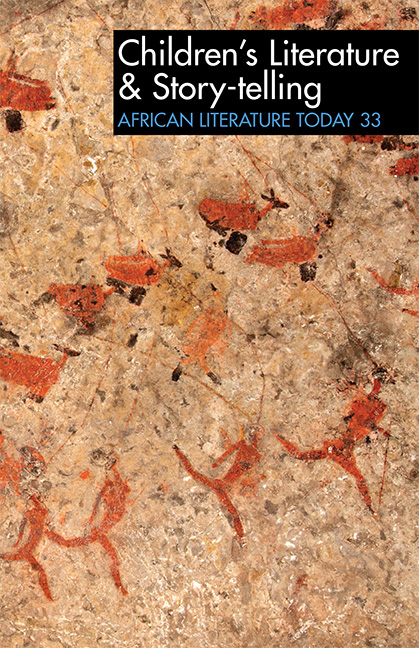Children’s Literature in Africa: Time to Rethink Attitudes & Misconceptions
Published online by Cambridge University Press: 22 May 2021
Summary
Speaking from a personal perspective, when I hear or see a ‘call for papers’, I say, that's academic and so that excludes me, a writer. … Unless people in academia offer courses in children's literature and critics and teachers take up the writing of papers on the genre, it is not going to come from the story-tellers. It is for the academicians to write about what the story-tellers produce. And if they don’t, it says a lot about the scholars and critics not story-tellers or writers of children's books.
– Sindiwe MagonaThe quote above is part of the reaction of the versatile South African author, activist, social worker and veteran writer of children's books, Sindiwe Magona (who was interviewed for this issue of African Literature Today), on being told that the response by scholars to this issue on children's literature and story-telling in Africa, was abysmally poor to say the least. Part of this situation can be traced to attitudes to, and misconceptions of the genre, Children's literature. The attitudes range from indifference to outright negativity. Some critics and scholars tend to see the genre as something quite trivial, nothing to reckon with, and undeserving of quality-time or the rigorous endeavours of eminent scholars of literary criticism. To emphasize this, some scholars on lecture circuits, and lecturers in classrooms have albeit unwittingly, chosen to refer to the genre as ‘Children Literature’.
Classified as something for children (like games for children or tales told to children about Santa Claus in some other places), it implies that adults need not take it seriously.
Any wonder why some publishers print and produce their children's books not just in ridiculously tiny sizes with hardly legible prints but also using cheap paper, and if there are illustrations at all, they are hardly ever in colour. There are mismatched edges and other evidence of hasty and shoddy production. On their scale of priorities in terms of commitment and allocation of resources, books for children are at the bottom of the ladder. And in our citadels of learning some promotion and tenure committees disqualify children's books as fulfilling the requirements of scholarly productivity, and those that accept them for assessment score them irreverently low! And when it comes to birthday, Christmas and other such occasions, some parents would rank books much, much lower than balloons and other toys as gifts.
- Type
- Chapter
- Information
- ALT 33 Children's Literature & Story-tellingAfrican Literature Today, pp. 1 - 5Publisher: Boydell & BrewerPrint publication year: 2015



